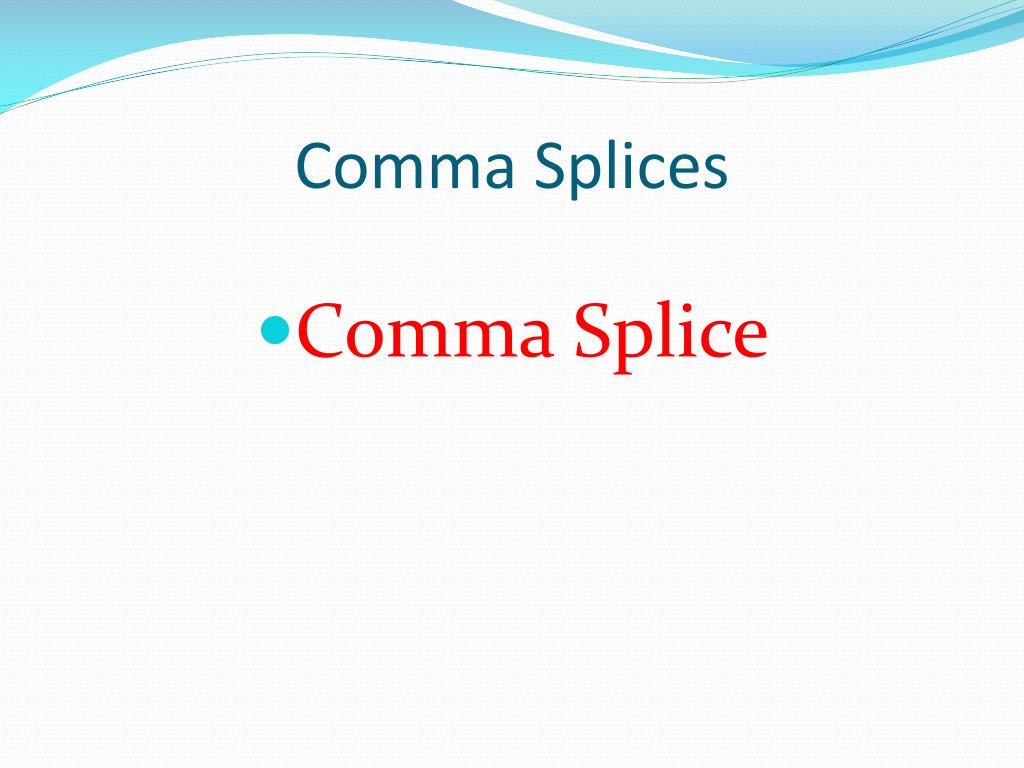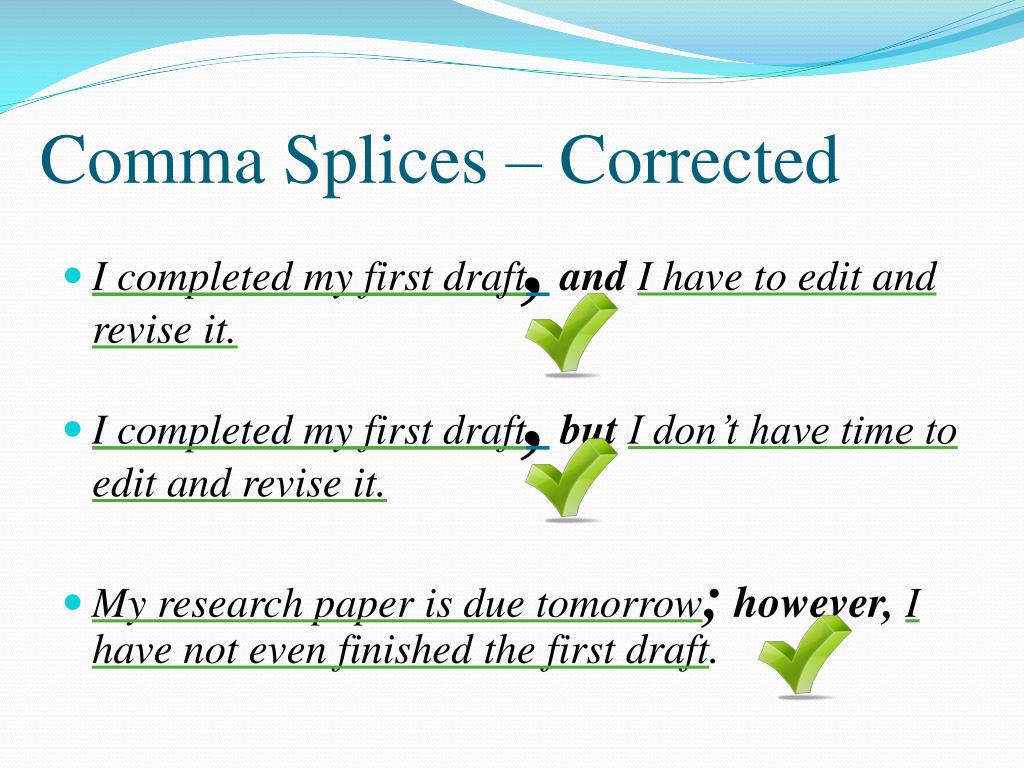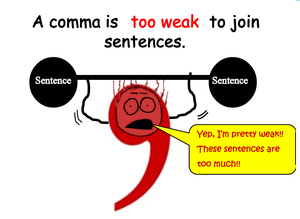
However in questionsĪ less common use of “however” is as an interrogative adverb, similar to “how.” Just like “how,” “however” is not followed by a comma in this context. There was no convincing him, however long they argued for.
#Comma splice examples with semi colan free#
Examples: “However” meaning “no matter how” However hard she tried, she couldn’t wrap her head around quadratic equations.įeel free to proceed however you see fit.

If it comes at the end, you can use a comma before “however,” but only if the sentence up to that point would make sense on its own (i.e., the “however” clause is nonrestrictive). If the “however” clause comes first, it’s separated from the following clause with a comma. When it’s not being used as a conjunctive adverb, “however” can instead be used to mean “no matter how,” “in whatever way,” or “to whatever extent.” In this use, it’s not followed by a comma. NoteYou can also read more about the rules regarding commas before or after “but.” However meaning “no matter how” I love to read fiction, but I don’t understand poetry.I love to read fiction, however I don’t understand poetry.
#Comma splice examples with semi colan series#
The same sentence (or series of sentences) can often be written with either “however” or “but.” The important thing is to remember that the two words require different punctuation and that “but” is also a perfectly valid choice. While coordinating conjunctions link clauses together directly and don’t have to be followed by a comma, conjunctive adverbs work differently they need to be preceded by a period or semicolon and followed by a comma.

“However” sometimes appears in the middle of a clause instead. When you use “however” to introduce a new sentence, it still needs to be followed by a comma, just like any other introductory phrase. When using a semicolon, you always have the option of replacing it with a period to create two separate sentences. TipA semicolon is used to connect two independent clauses-clauses with their own separate subjects and verbs that could stand alone as sentences.

It’s incorrect to punctuate “however” in the same way as “but,” just placing a comma before it and nothing after it. People often make punctuation mistakes when using “however” to connect two clauses in a sentence. Worksheet: Comma before or after however.


 0 kommentar(er)
0 kommentar(er)
